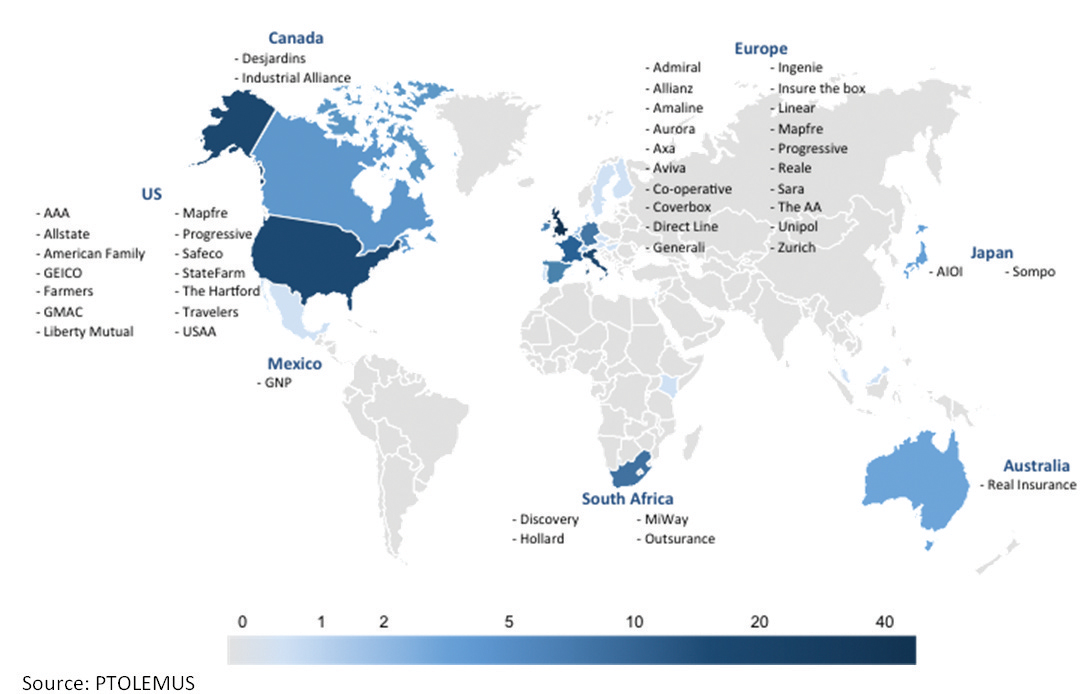According to the ADLV’s (Association for Driving Licence Verification) 2017 predictions transport fleets will be using richer, bigger data more frequently to drive areas from compliance through to road safety
The best practice frequency for compliance in licence checking by fleets has recently increased to twice a year, on average. Under the recently issued FORS Standard (Version 4.0) twice-yearly checks are now the minimum requirement. However, many larger fleets are now carrying out quarterly checks, e
According to the ADLV’s (Association for Driving Licence Verification) 2017 predictions transport fleets will be using richer, bigger data more frequently to drive areas from compliance through to road safety
The best practice frequency for compliance in licence checking by fleets has recently increased to twice a year, on average. Under the recently issued FORS Standard (Version 4.0) twice-yearly checks are now the minimum requirement. However, many larger fleets are now carrying out quarterly checks, ensuring that the data that fleets are now working with is almost constantly updated and therefore of a much higher quality.
Early this year, CPC and tachometer data will become available alongside standard driving licence data. The ADLV is already working on a number of additional data sets to combine with driving licence and tachometer data.
ADLV data will play its part in what it says will be more use of big data to drive fleet analytics in support of management decision making. Driving licence data is one of the essential elements here in terms of setting the parameters for risk profiling and management for all businesses whose employees drive on their behalf. It is also the starting point to begin to profile the driver pool with a view to encouraging better driving styles and habits.
With the wider acceptance of black box or mobile-based telematics solutions and the spread of connected vehicles into the fleet and grey fleet areas, ADLV believes there will be a greater emphasis on fleet business intelligence and driver data analysis. The information identified will drive fleet decision making as well as wider corporate and government policies on taxation, transport and the environment. It will also create a far richer more innovative data environment for fleet managers.
Over the course of the 2017 ADLV will be looking to work with a number of road safety organisations to identify how ‘Knowing Your Driver Better’ can boost road safety.
The best practice frequency for compliance in licence checking by fleets has recently increased to twice a year, on average. Under the recently issued FORS Standard (Version 4.0) twice-yearly checks are now the minimum requirement. However, many larger fleets are now carrying out quarterly checks, ensuring that the data that fleets are now working with is almost constantly updated and therefore of a much higher quality.
Early this year, CPC and tachometer data will become available alongside standard driving licence data. The ADLV is already working on a number of additional data sets to combine with driving licence and tachometer data.
ADLV data will play its part in what it says will be more use of big data to drive fleet analytics in support of management decision making. Driving licence data is one of the essential elements here in terms of setting the parameters for risk profiling and management for all businesses whose employees drive on their behalf. It is also the starting point to begin to profile the driver pool with a view to encouraging better driving styles and habits.
With the wider acceptance of black box or mobile-based telematics solutions and the spread of connected vehicles into the fleet and grey fleet areas, ADLV believes there will be a greater emphasis on fleet business intelligence and driver data analysis. The information identified will drive fleet decision making as well as wider corporate and government policies on taxation, transport and the environment. It will also create a far richer more innovative data environment for fleet managers.
Over the course of the 2017 ADLV will be looking to work with a number of road safety organisations to identify how ‘Knowing Your Driver Better’ can boost road safety.










